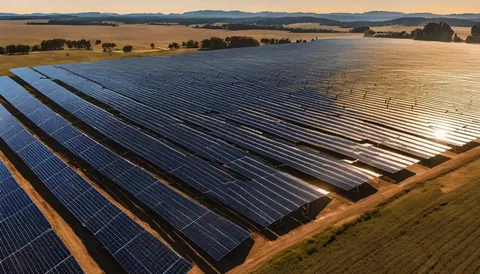As businesses look for ways to reduce costs and environmental impact, the debate between commercial solar systems vs. traditional energy becomes increasingly relevant. Both energy sources have their advantages and disadvantages, but determining which is better depends on various factors such as cost, sustainability, reliability, and long-term benefits. This article will explore the differences between commercial solar systems and traditional energy, helping businesses make an informed choice.
Understanding Commercial Solar Systems
Commercial solar systems involve installing solar panels on business properties to generate electricity from sunlight. This renewable energy source is gaining traction worldwide due to its eco-friendly nature and potential for significant cost savings over time.
Benefits of Commercial Solar Systems
- Cost Savings: After the initial investment, solar energy can significantly reduce electricity bills.
- Environmental Impact: Solar systems produce clean, renewable energy, reducing carbon footprints.
- Energy Independence: Businesses become less reliant on the grid and traditional energy providers.
- Incentives and Tax Breaks: Many governments offer financial incentives to encourage solar adoption.
What is Traditional Energy?
Traditional energy mainly refers to electricity generated from fossil fuels such as coal, oil, and natural gas. These sources have powered industries for decades but come with significant environmental and economic concerns.
Drawbacks of Traditional Energy
- Environmental Pollution: Fossil fuel consumption contributes to greenhouse gas emissions and climate change.
- Price Volatility: Traditional energy costs fluctuate based on global markets and geopolitical events.
- Finite Resources: Fossil fuels are non-renewable and will eventually deplete.
- Regulatory Pressure: Increasing regulations aim to limit pollution, which can increase operational costs.
Comparing Commercial Solar Systems vs. Traditional Energy: Which is Better?
Cost-Effectiveness Over Time
While traditional energy may seem cheaper upfront due to existing infrastructure, commercial solar systems offer long-term savings by reducing monthly electricity costs. Over time, solar installations can pay for themselves and even provide a return on investment.
Environmental Considerations
In the comparison of commercial solar systems vs. traditional energy, the environmental advantage strongly favors solar power. Solar energy is clean, renewable, and sustainable, whereas traditional energy contributes heavily to pollution and climate change.
Reliability and Energy Supply
Traditional energy currently offers more consistent energy supply and is less dependent on weather conditions. However, advances in solar technology and battery storage are improving the reliability of commercial solar systems.
Maintenance and Lifespan
Solar panels generally require less maintenance than traditional energy plants and have a lifespan of 25-30 years, making them a durable energy solution.
Conclusion: Which Energy Source is Right for Your Business?
When evaluating commercial solar systems vs. traditional energy: which is better?, commercial solar systems often emerge as the more sustainable and economically wise choice for the future. Although the initial investment is higher, the long-term benefits in cost savings and environmental impact make solar energy an attractive option for businesses looking to innovate and reduce their carbon footprint. Traditional energy may still play a role in providing reliable power, but the shift toward renewable energy is clear and inevitable.

